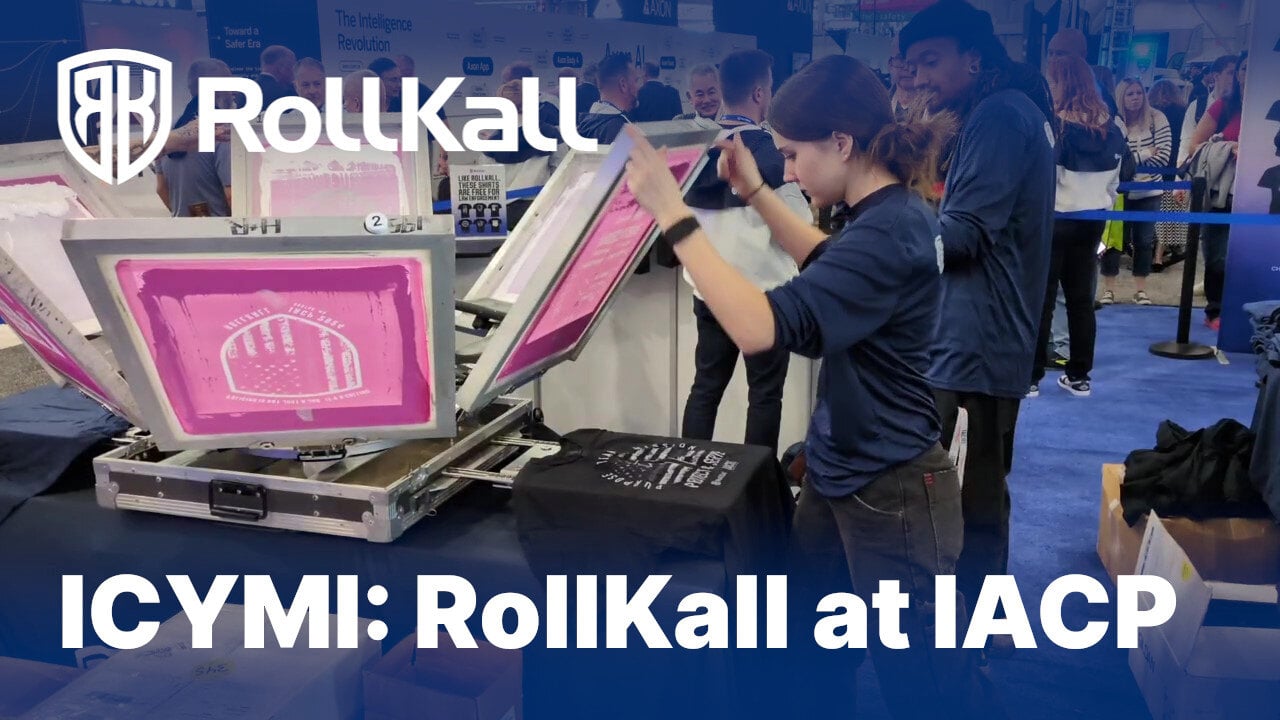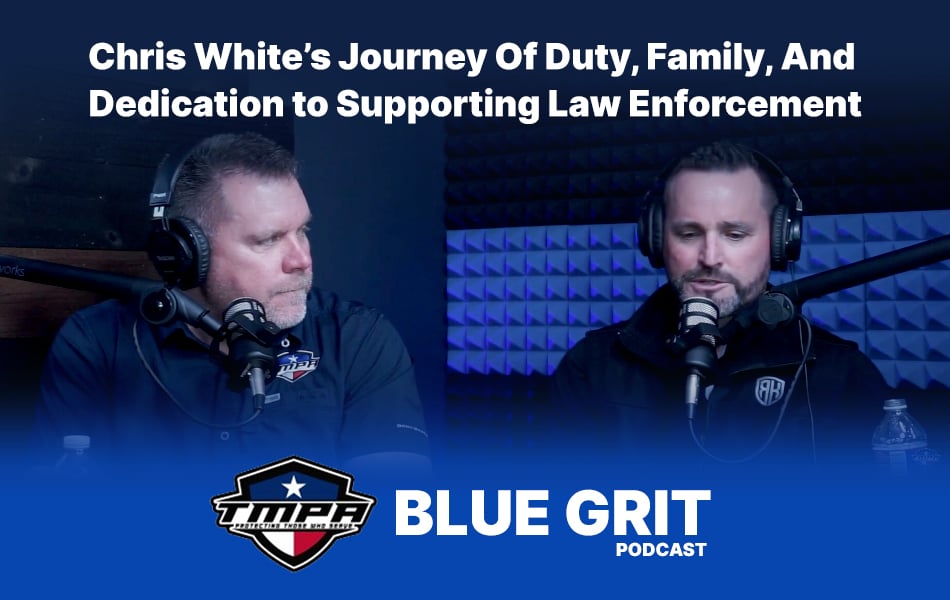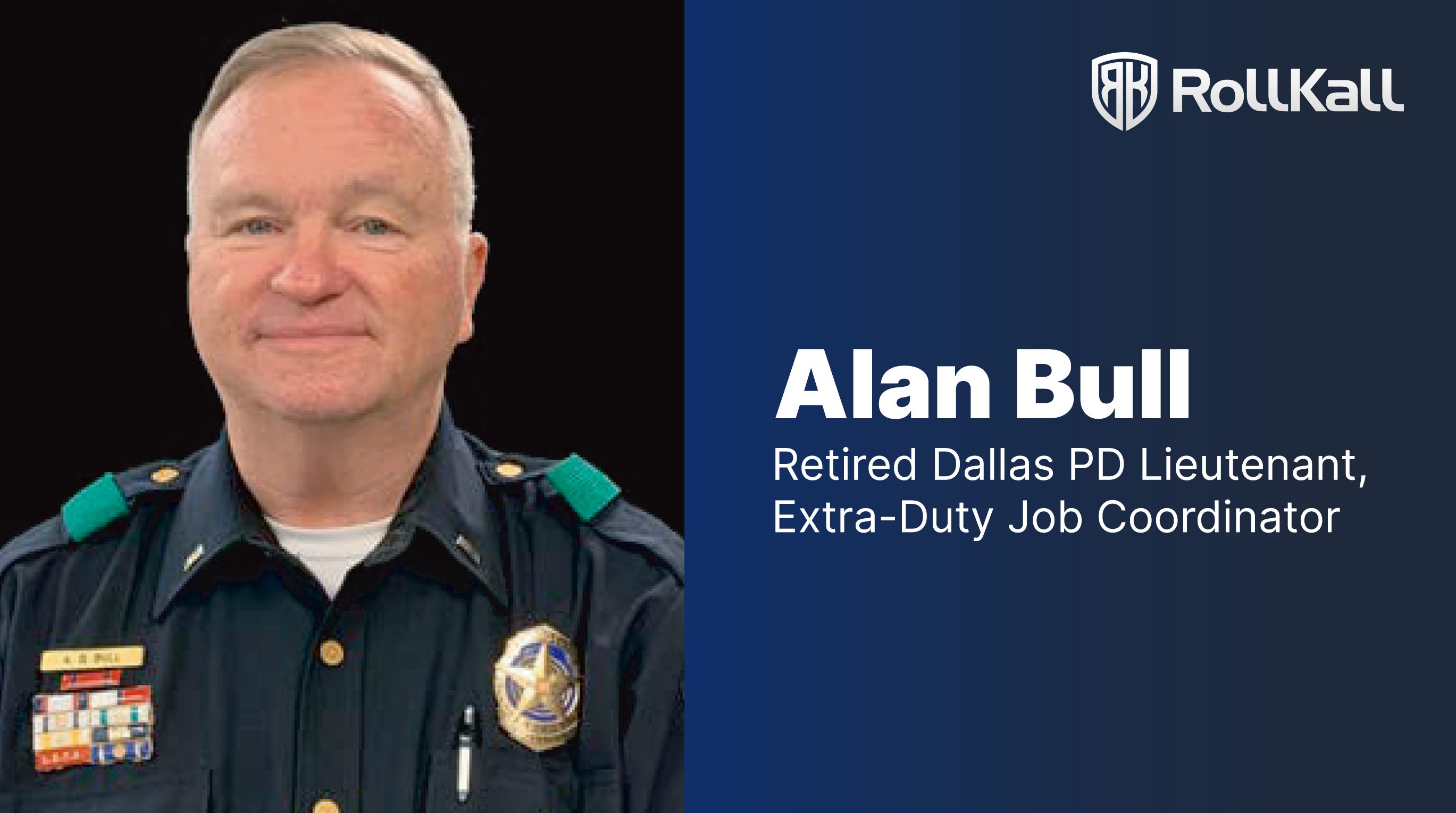Download the free guide
Aenean eu leo quam. Pellentesque ornare sem lacinia quam venenatis.
July 8 2021
Components of an Effective Off-Duty Program for Law Enforcement Agencies

According to the U.S. Department of Justice’s Bureau of Justice Statistics, 83% of police departments nationwide have off-duty programs.
While off-duty programs are secondary to a department’s on-duty commitment to protect and serve, each off-duty or secondary employment program plays an important role for the agency, officers and the community they support. It’s important for each department to oversee an off-duty program that is beneficial, safe and transparent for all involved.
Making Off Duty a Priority
While most departments open up off-duty work to their officers, they do so with varying degrees of oversight and organization. Making off duty a priority leads to safer communities and a higher level of trust between law enforcement, the businesses they work with, city administrators and the community at large.
Most departments have an off-duty or extra-duty policy in place already. Policy and best practices typically include regulations such as:
- a max number of hours officers are allowed to work off duty
- restrictions that may be needed (like working for businesses that present a conflict of interest)
- identifying whether or not off-duty liability falls on the department
- other requirements as they relate to department-specific or regional needs
Having an established procedure maintains accountability and the welfare of the agency, its officers and the community.
If your department doesn’t have a policy in place, the International Association of Chiefs of Police offers Secondary Employment recommendations.
Maintaining Policy Compliance and Transparency
Identifying department policy is just the beginning. Policy compliance is an important follow-up to ensuring that officers aren’t too fatigued in the line of duty, that assignments are fair and that all off-duty details are managed and worked responsibly.
Transparency is vital to the health and trust of any law enforcement agency undertaking. Off-duty work can sometimes yield claims of divided loyalties, citizen complaints, or even claims of corruption. Any or all claims of this nature can lead to a poor public image of the department or even, in a worst-case scenario, a lawsuit.
A transparent program provides visibility into off-duty goings-on should any questions or issues arise. Many departments are moving to off-duty management platforms to help provide this oversight, organization and to streamline the process.
The Need for Oversight and Documentation
Oversight and documentation of an off-duty program are different sides of the same coin.
Utilizing a streamlined and consistent system to manage off-duty provides insight and control to ensure officers are working off-duty responsibly.
Having easy access to documentation minimizes agency risk in innumerable ways. Should any problem occur, it’s important to have the necessary documentation to assess any issue, possible causes and solutions.
If the city came to your department looking to audit your off-duty program, would you have all the documentation ready to go in one place?
In the event of a city or tax audit, having all job details documented, organized and ready to go makes the process go more quickly and smoothly.
On-the-job Oversight
Another advantage of moving to an off-duty management platform is the capability for GPS functionality, driving visibility into an officer’s off-duty shift.
When an officer clocks in and maintains an online presence through a location ping via cell tower, there is little room for question or doubt over off-duty services.
With every aspect of off-duty completely transparent, departments maintain insight and control in managing their upstanding reputation.
Managing Administrative Details
One of the biggest challenges facing agencies when it comes to off-duty is finding the bandwidth to manage the administrative commitment. Coordinating the details can be a sizeable undertaking and typically includes:
- Job request intake
- Scheduling
- Managing Call-Offs
- Invoicing
- Payment
- Insurance
Many departments enlist an officer to coordinate off-duty, and often they are willing participants. However, depending on the number of requests for off-duty jobs a department receives they can spend upwards of 10 hours a week managing job details.
Historically, off-duty has a reputation for being coordinated in a more casual way, using whiteboards or mass texts to alert officers of jobs. As demand grows, a manual system, even with the help of spreadsheets, becomes time-consuming and fragmented.
As a result, many law enforcement agencies have moved towards using off-duty management systems with a heavy emphasis on technological tools to help simplify the process. Tech tools play an important part in adding organization, structure and efficiency to the whole process all while keeping off-duty visible and transparent.
Billing Challenges and Considerations
An extension of off-duty administrative management is the invoicing and payment process. Many departments send businesses a separate invoice for each officer, coordinator fees, department fees and equipment fees. Depending on the scope of the job, this process has the potential to yield numerous invoices and numerous handwritten checks, creating an accounting hassle for both the department and the business.
Chasing down so many invoices to make sure officers get paid in a timely manner is a daunting task for any department coordinator and takes up a significant amount of time.
Utilizing a payment processing platform can alleviate much of this administrative strain by combining every separate invoice for a given job into one place. Electronic payments make the process move even faster and help officers receive quick payment, and provides an easily accessible payment history if it’s ever needed.
Taxes
While off-duty programs that are paid through the department as a W2 will have taxes automatically taken out, officers that work off-duty in a 1099 capacity will have to pay taxes on that income earned.
For 1099s, each business must send a 1099 to any officer that accrued more than $600 over the fiscal year. Each officer will, in turn, need to make sure they collect their 1099s from every business they worked with and earned more than $600.
This could potentially mean a lot of paperwork for both the business and the officers. Another perk of using an off-duty management system is that taxes are automatically combined and sent to officers - all on one form, automatically.
Managed Services
Some law enforcement agencies want a completely white-glove, hands-off approach to their off-duty program. A managed services program will dedicate a professional coordinator to manage jobs and scheduling, invoicing, collections and reporting.
Liability of Off-Duty Work
Another major concern for law enforcement agencies is liability in the event an incident occurs while an officer is working off-duty. Many agencies outline in their policy that they are not liable for medical expenses or damages in the event of an incident.
However, many businesses require insurance for any entity providing security. This creates a roadblock where the law enforcement agency can’t provide off-duty services to the business. A general liability policy will cover any damages to the business should an accident involving an off-duty officer occur and enabling officers to work with those businesses.
Additionally, the officer’s welfare is at stake. If they are injured in the line of an off-duty assignment, the police department doesn’t always offer workers’ comp or occupational accident insurance to cover medical bills or lost wages.
These situations are most common when off-duty police officers are working off-duty as a 1099 contractor vs a W-2 employee.
Another consideration is the very classification of 1099 and W-2. They represent two distinct classifications of employment, RollKall has made it a point to ensure officers maintain their 1099 status when they are paid for secondary services.
Managing Community Relationships
One of the benefits of participating in an off-duty program is that it helps foster good relationships between the department and the local business community which, by extension, strengthens relationships with the local community at large. Having a police presence out in the community outside of their normal duties helps build trust and camaraderie with the public.
This relationship is only strengthened when a department has a simple process. An easy process yields a happy and easy-going relationship between business owners and law enforcement. Simplifying off-duty helps increase the interest in hiring police offers which in turn increases the requests and provides more job opportunities for officers.
A streamlined off-duty process also offers added efficiencies and cost reductions to the following city departments:
- Finance and Accounting
- Legal
- IT
- City Managers
The city also has a vested interest in making sure off-duty programs are run responsibly and can and will audit a department should they receive any community complaints. Off-duty that is organized and streamlined makes it that much easier to maintain a good relationship with the city should they have a request into any aspect of the off-duty program.
Handling the Transition to an Off-Duty Management System
Changing a system, even if it’s for the better, always carries an element of growing pains. It’s important to ask a few questions before signing on to any off-duty management system so you know what to expect. Be sure to ask questions, such as:
- How long will it take to get all officers, admins and clients on the system?
- What time commitment is there for the department? The officers? Our clients?
- What are the costs? Are there associated licensing fees?
- What kind of support is in place to help as we make the transition?
- What other departments use the same platform?
- Does insurance come with the service?
- Are taxes taken out of officer or coordinator payments?
- Our department runs things differently. Can you accommodate custom policies and procedures?
It’s also imperative to schedule a demo to make sure any off-duty management tool is easy to use and a good fit for your department.
Off-duty employment is an important part of law enforcement - for the agencies, officers and local businesses looking for heightened safety and professional security.
Get the latest content delivered straight to your inbox!
Related Posts
Want more information about RollKall? Let us know a bit about you, and we’ll get back to you as soon as possible with more information and next steps!















